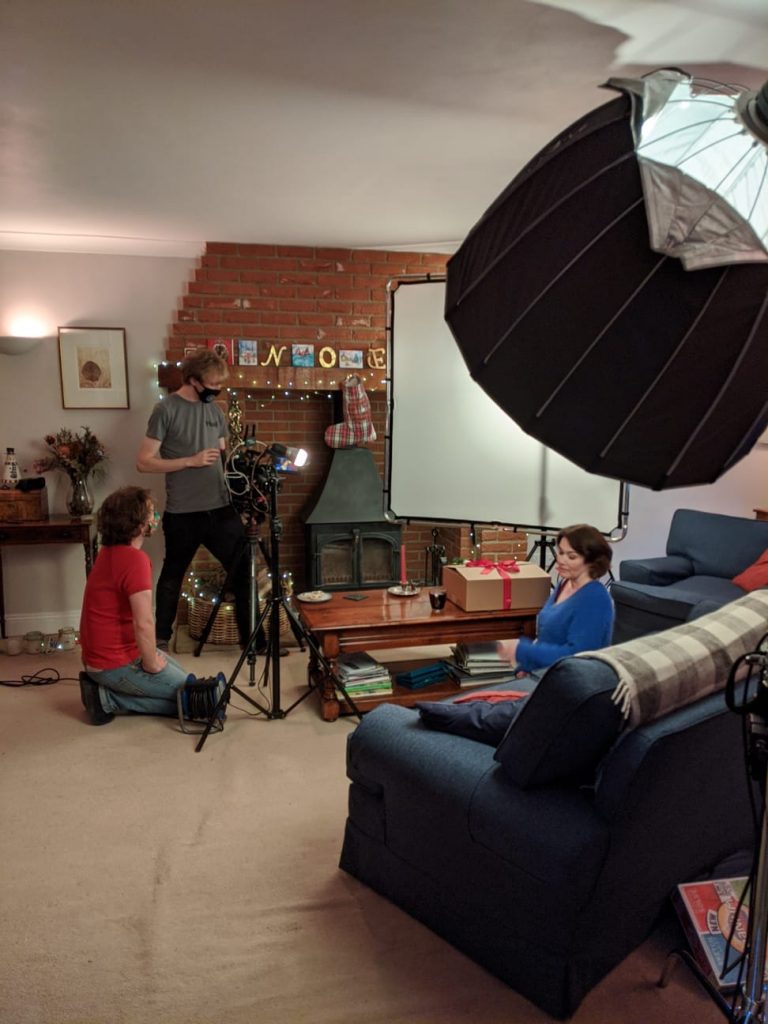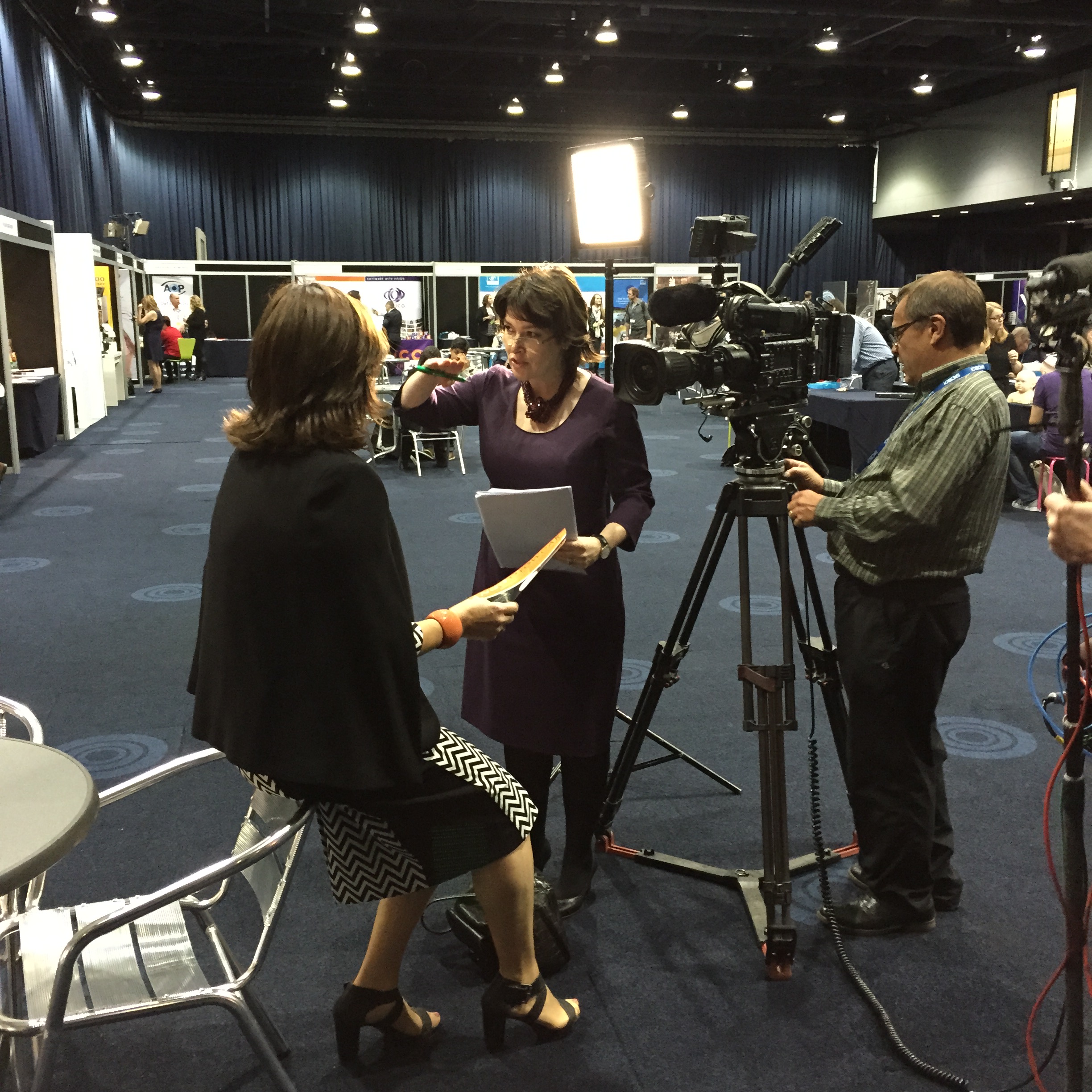There’s a thread on Facebook: how does the movie business remind you of military service? (a lot of veterans work in film and TV). I have worked in both sectors (with NATO, the UK Ministry of Defence and many different countries’ military forces) and in film/TV production as an actor and crew-member. It’s a humorous post but there’s a lot of insight in the comments e.g. ‘getting yelled at and it not phasing you’, ‘the camaraderie and ball-busting’, and ‘terrified of being late:)!’

I have seen how a movie crew swings into action at a second’s notice: suddenly all the lighting guys or carpenters are on set, building something, or the sound guys swarm in. All the crew are on earpieces/headsets for instant comms to hear everything that’s being said by the director, or the head of your particular department (there are different channels for Hair & Makeup, Wardrobe, Sound, Art Department/Props etc). So it got me thinking: how does it all work so smoothly and quickly? How is everything on hand just when it needs to be? How is the next set built and ready, just as the previous set is finished with? It DOES work with military precision! Here are my thoughts, based on the comments on the FB post:
Comment 1: Set dressers go and dig the fox holes. Shooting team arrives and hopes the fox holes are dug deep enough. There is a battle to get the shots and keep everyone safe. Shooting team moves on to the next set of fox holes, while set dressers go back in and refill the old fox holes. A foxhole is a “small pit used for cover, usually for one or two personnel, known in the US as a “fighting position”. The set dressers on a film shoot put all the right furniture/props in a given area/room, ready for the take. When the director gets there, they might not like a plant, vase or prop in the background, so things get removed or shifted around. Props that are referenced in the script (eg someone hands someone something) have to be there. I have seen a door taken off its hinges so a camera can track through, or the view through a window was too bright/dark so the lighting needs adjusting. Finally the filming is done, from a few different angles, and then it’s on to the next location, which might be in the same building, or another place entirely. Note: the door has to be put back on its hinges and left exactly as it was before (that’s why so many photos are taken on people’s mobile phones) plus all the plants/vases back as they were. Everyone is working from a call sheet, so everyone knows what has to be achieved that day, with approximate timings. I have seen those timings woefully underestimated, which means people have to work a reeeeeeally long day (you never push things into the next day, because that has its own call sheet, with its own timings and tasks).
Comment 2: Not complaining and just doing the job: Everyone on a film set is stoked to be there, leaps up immediately to do their work and has a positive, can-do attitude. If not, you’ll get replaced. There are 100 people waiting in line to do your job! It’s fun, prestigious, creative, it pays well, it’s satisfying and interesting. You’re working as a team to create the magic! Of course, people do mutter privately, but their public face is: Yessir! Right away! Yes I CAN completely change that thing around that I just spent 2 days creating, no problem! No-one drags their feet – or they’ll get reprimanded pretty-damn-quick. Just get on with it.
Comment 3: Long hours, working until it’s done – not until you’re tired or your hours are up: this is related to the previous point. All the crew and cast get tired, especially on a long shoot – working 6-day weeks and it’s several months before the filming phase is done. But we are well fed and watered, there’s constant coffee/tea available, plus snacks and hot meals (excellent fry-ups and healthy options for breakfast, several choices for lunch including fish and vegan every day), so “an army marches on its stomach” is definitely the watchword. It’s a marathon, not a sprint. You know before you take the job that a standard day is 12 hours, or 10 hours, or whatever, and extra hours are paid as overtime. You know the deal. And as our work is precarious (freelance work is ‘feast or famine’ with many weeks idle sometimes) so we are just glad to be working, out of the house, with likeminded, creative, talented people.
Comment 4: Locations do Scout Recon at the beginning to find the best terrain for the mission, and gather intel on the enemy (the public, owners, city hall). After that we’re on the perimeters looking for enemy activity – like a picket line of skirmishers (albeit unarmed), or in the rear with the gear! By the time I get on a set, there’s been several months (or years) of preparation done first. The location has been chosen. Several locations have been rejected because: not enough parking, the council doesn’t want you to film, too many residential houses nearby, not enough space inside to get the right camera angles, the location can’t be closed/cleared of its usual users/residents at the right time (eg a lot of filming is done in schools in the holidays) etc. And on the day(s) of filming, the public have to be kept out (they’re naturally curious but it does ruin the shot). Security have to move them on, hold them back and then let them through between takes, in the nicest possible way (it doesn’t always work – I’ve seen a resident get quite shirty and shout, “No, I live here and I am going to walk through this street right now, whatever you say!” Ok luv).
Comment 5: Chain of command in departments: Film/military work requires strong skills from the specialists. Just like in a military op, team members have to be flexible and ready to use wisdom and ingenuity to adjust for changing conditions – which WILL BE GUARANTEED TO HAPPEN several times during production. On a big film, with a good budget, all the departments will be at the top of their game. I recently worked with “one of the best actresses in British history”, an Oscar winner, a multi award-winning director, a BAFTA award winning Head of Sound, and the list goes on (by the way, I have also worked with student film-makers where nobody has won anything, they’re just starting their careers). The point is, everyone knows exactly what is expected of them, how to achieve it, and how to handle the unexpected, wordlessly and efficiently. No-one else will know if they’re panicking or fed up, just like the military. (well, you may hear a few grumbles but out of earshot of the brass).
Comment 6: We need solid leadership from the officers/directors who need to set mission parameters but also inspire their team to achieve the utmost possible perfection – and do so in concert with one another. Just as an incapable commander CAN succeed (or rather doesn’t) only by pulling rank, a director and/or executive producer who is “out of touch” with their team can cause the project to run on diminished capacity or fail altogether. At my level, I have seen disagreements, tempers flaring and stress on set, but usually people at the lower levels are kept away from this. I know there are differences of opinion in the military, as in all professions. The ideal is though: that all the available skill and talent believes in the vision and trusts their “commander(s)” and work together as one… then the magic happens. Easier said than done but the discipline of the military means everyone knows how to knuckle down and do what they are told, and not storm off in a huff (unless it’s towards the unemployment line).
Comment 7: The communication style and usage of terminology such as 10-1, 10-4, your 20, etc. Just to end on a humorous note, there is a lot of military jargon on a film set. 10-1 is “I am going for a wee”. Indidentally no-one really announces they’re going for a poo: I guess the 10-1 covers both?! 10-4 is “OK, message received, you got it”. I have also heard, “Copy that” a lot, but haven’t been able to bring myself to say it. “Your 20” means, “What is your location?” (who knew? I just had to look it up). This has all leaked through from the military because it’s an efficient system in radio commumication.
In conclusion, the best film sets I have worked on run on well-oiled tracks like a Swiss watch, to mix my metaphors. Everyone is “trained like Marines”, prepared, skilled, combat-ready and effective. We work for the common goal efficiently and enthusiastically, for as long as it takes. And we’ll have some well-deserved R&R at the end.

The original Facebook threat can be found here (closed group)



